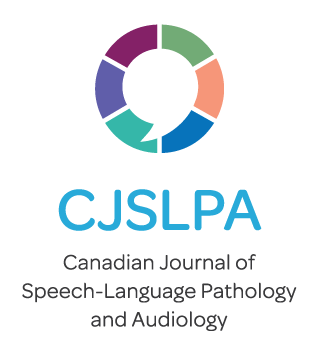

| Author(s) |
Fred H. Bess Terrey Oliver Penn |
| Volume | 24 |
| Number | 3 |
| Year | 2000 |
| Page(s) | 119-129 |
| Language | English |
| Category | |
| Keywords |
universal newborn hearing screening out |
| Abstract |
Since the initial call for universal newborn hearing screening (UNHS), an intense professional debate regarding the possibility, effectiveness, efficiency, and risks has ensued in the professional literature. Despite the earlier controversies and continuing concerns surrounding UNHS, more recent and widely publicized support for UNHS has lead to a groundswell of new programs. This paper is intended, not to take a position on the value of UNHS, but to remind professionals involved in UNHS that critical issues remain that warrant serious discussion. This paper focuses on several important issues and concerns that program leaders will encounter in the development and implementation of UNHS. These include programmatic (i.e., predicting screening outcomes, improving screening outcomes, and optimizing performance), cost, legal, follow-up, and training issues associated with UNHS. By attending to and selecting the most successful aspects of programs one can establish a high-quality standard that will provide momentum for UNHS growth. Depuis qu'a été proposé le dépistage universel de la surdité chex les nouveau-nés (DUSN), un intense débat concernant les possibilités, l'utilité, l'efficacité et les risques d'un tel programme a émergé dans la littérature professionnelle. Mais malgré les controverses initiales et les préoccupations toujours actuelles au sujet du DUSN, le large engouement public récent en sa faveur a favorisé l'apparition de nouveaux programmes. Cet article ne vise pas à prendre position quant à l'utilité du DUSN, mais plutôt à rappeler aux professionnels que des questions importantes restent à étudier. Il met l'accent sur les questions et préoccupations fondamentales auxquelles les responsables de programmes devront faire face lors du développement et de la mise en oeuve du DUSN. Citons notamment les questions liées à l'exécution des programmes (c. - à-d. la prévision et l'amélioration des résultats du dépistage ainsi que l'optimisation de la performances), aux coûts, à l'aspect juridique, au suivi et à la formation. En veillant à sélectionner les éléments les plus performants des programmes, une norme de qualité élevée pourra être établie, ce qui donnera un élan au développement des programmes de DUSN. |
| Record ID | 48 |
| Link | https://cjslpa.ca/files/2000_JSLPA_Vol_24/No_03_93-144/Bess_Penn_JSLPA_2000.pdf |
CJSLPA is an open access journal which means that all articles are available on the Internet to all users immediately upon publication. Users are allowed to read, download, copy, distribute, print, search, or link to the full texts of the articles, or use them for any other lawful purpose.
CJSLPA does not charge authors publication or processing fees.
Copyright of the Canadian Journal of Speech-Language Pathology and Audiology is held by Speech-Language and Audiology Canada (SAC). Appropriate credit must be given (SAC, publication name, article title, volume number, issue number and page number[s]) but not in any way that suggests SAC endorses you or your use of the work. You may not use this work for commercial purposes. You may not alter, transform, or build upon this work.